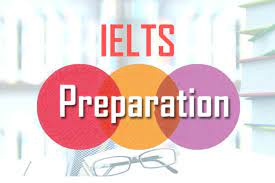Higher education has become a rich cultural asset for transcending global cultures among different students. That said, the higher opportunities also brought numerous options to connect with global MNCs, organisations and more. Thus, the connection has significantly impacted economic and cultural diversity.
As time advances, the methods of higher education are rapidly changing. The rapid change includes – increasing enrolment, student mobility, and diverse provisioning in research and technology. Studies state that around 235 million students enrol in global universities every year. The universities have hence expanded their course curriculums and doubled the count of the total number of student enrollments. As a whole, the scenario changed according to the needs of the students and the demands of the future world. That’s why educational institutes are following new methods to improvise their studies.
However, some new realities are reshaping the future standards of the studies.
Now, what are these new realities?
Speaking of the new realities, various combined trends have been used creatively to incorporate old-school methods. On that note, read on to find the realities that will bring the change adhering to making higher education better.
The continuous inflow of new content producers and distributors
Online classes require regular content variation. In this regard, the education institutes will emphasise more on digital technologies. Moreover, the online courses will reject time and place-based courses. The motive for such modes is to make the studies available to every student. Alongside this, the inflow will focus on creating low-cost degrees. However, the existing institutions in the market may focus on including brand name industries and other cultural agencies. These agencies focus on providing different access to various data.
Nevertheless, online classes contain more diverse content and various aspects to cover. Also, some of them are highly affordable. Therefore, the content producers will have more platforms to work on.
Increase in higher education consumers
From different sectors, the advent of global digital media and other content providers has multiplied the number of consumers. As a result, the digital revolution will put more power in the hands of the learners to try out new methods. In addition, the increase in students will allow them to have more study services.
Access to numerous AI devices
Since digital media has focused on universal access, colleges and institutions will now focus on the same. The educational institutes will focus on accumulating various online materials, tools and more for better access.
Likewise, they will put the services at affordable rates to buy the needful things for their course.
As a result, the traditional and lower-cost equipment will be upgraded to cloud applications. Cloud applications are the future for computing and storing files. It will eventually make the students learn about different cloud computing software too. For instance, nowadays, some IT courses focus on Oracle assignments that’ll help the students to be on par with the present time.
Use of economy-based models
In the coming future, higher education will focus on the outcomes that the students want to achieve. The courses will become more concise, which will help the students to work on their skills. Previously, the content within the courses was becoming heterogeneous, which made it no relation to the student’s skills. That’s why it was difficult for the students to choose a direct pathway to make a career out of the courses.
As a result, these economy-based models should be devised. These models focus on the student’s outcome. Therefore, the students will be able to polish and learn the skills. Moreover, it will add more practical approaches to make the courses effective. As the students don’t learn at the same rate, the explosion of different content can become heterogeneous. Instead of prioritising academic results, the courses should believe in excellence.
Diminishing of time-bound degrees
There’s a high possibility of resetting the standards of ‘time-bound’ courses shortly. In that case, we might see that the value of degrees will decrease. Instead, education will indicate skills and knowledge. The skills can prepare the students for the future. Thus, it will result in making it more present-oriented and more immediate.
Alongside this, the constant need for upskilling and reskilling will help them balance the educational programs closely aligned with the labour markets. On that note, the provisional certificates, micro-badges and other credentials will come in handy. As a result, they can refine their higher education background to provide an accurate academic background.
The new breed of the campus experience
In 2020, the pandemic disrupted many lives. As a result, the IT staff has worked relentlessly to provide easy classes and more. Also, the pandemic made several students juggle multi-tasks and more. That’s why universities and colleges now understand the importance of online methods. These methods include a personalised dashboard, student portal, collaborative platforms and real-time grade point schemes. Thus, an AI-based campus experience can provide:
- Flexible campus framework
- Security of student’s data
- Instant assistance and engagement through automated chatbots
New modes of research
Research is considered the backbone of every university assignment help for class and task. As a result, my students previously relied on different real-time services that could deliver instant research. However, the researched data are prone to get lost. The new modes can help to provide an unparalleled mode for stacking the research materials. Therefore, universities can use collaborative cloud-based technology to store research materials. In this way, the research can be stored, and embedded with profile data, focusing on the prevention or loss of data.
Endnote
Speculating future circumstances can be a little tricky. However, with the existence of Law assignment help and new forms of education, most students and professionals can predict the more innovative change in higher education. Moreover, the students can have mandatory smart classes and free AI tools for their studies. Thus, these prospects can lead to a primary change where the old methods are renewed with the modern ways for creating a diverse one.





